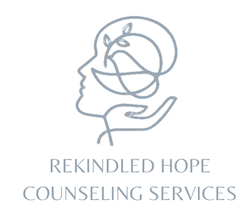Communication is Key
Family counseling helps the teenage years to be less overwhelming. Teens often do not have the confidence in themselves to communicate their emotional needs effectively. They struggle in making their parents understand them, and as a result, often shut down.
As adults we often have a hard time expressing our feelings. So imagine how your child feels when trying to express himself? Add in the normal teenage fear that everyone is critical and judging them and asking for what they need becomes very difficult. Often, fear of rejection, stops your child from sharing and they begin to build up walls they see as protection.
As a parent this can be frustrating. There is nothing worse than not knowing how to help your child. Try to be sensitive to these moments when they come up. Although this can be hard to do when you feel like you are hitting a brick wall. Many young people are reluctant to open up when they feel afraid, and the best solution is to let them know you are there always there.

Developmental Depression
Teenage through young adult years are accompanied by a sudden awareness of the fragilities of life. The realization of vulnerability begins to cast shadows on your teenagers outlook of life. This is known as developmental depression and it creates a sense of internal unrest. It also signals a fresh chapter in their life and a new sense of self begins to emerge. Sifting through these insecurities and uncertainties is necessary for successful transition. Development depression is often expressed through:
- Mood instability
- Feelings of sadness and melancholy
- Loss of interest in some but not all pleasurable activities
- Social anxiety
- Occasional fatigue, insomnia or hypersomnia
- Infrequent suicidal or homicidal ideation without intent
Family counseling opens up the doors to communication in these circumstances.
Atypical Depression
If you begin to see that your teen seems to be spiraling downward, this is referred to as atypical depression. Atypical depression creates more serious emotional instabilities. Generated by increased levels of emotional distress, atypical depression is often triggered by disruptive forces such as:
- Undiagnosed learning disabilities
- Illness and injury
- Trauma
- Social rejection
- Parental conflicts
- Death of a loved one
- Financial hardship
- Changing homes or schools
Unlike a developmental depression, in which teenagers experience tolerable levels of moodiness. Atypical depression overwhelms teens with crushing despair and overpowering tension. Feelings of rage, frustration, hopelessness, or powerlessness flare up.These feelings can lead to negativity, or destructive obsessions. During atypical depression, teenagers may appear persistently fatigued, hypervigilant or exhausted.
When something goes wrong with your child, asking for help can trigger feelings of failure or shame. However, getting help for your child is an act of compassion not a sign of weakness. When atypical depression is left untreated, it can negatively alter the entire course of your child’s life. Family counseling is very effective for everyone involved.
Features of atypical adolescent depression may include:
- Predominantly depressed or irritated mood
- Loss of interest in activities that were once enjoyable
- Social isolation and/or panic attacks
- Persistent fatigue, insomnia or hypersomnia
- Prolonged feelings of hopelessness and indecisiveness
- Severe mood swings
- Persistent suicidal or homicidal ideation
Three Signs that your Teenager Needs Help
1. Self-Harm
If you teen is cutting, or hurting themselves, this is a sign of unbearable emotional turmoil. This can lead to psychic imbalance. Self-harming behaviors can become habit forming and escalate over time.
2. Chronic Substance Abuse
Experimentation is common, but if your teen is regularly coming home drunk or high, a serious problem is taking root. Act immediately, particularly if your family has a history of substance abuse. Teens suffering from atypical depression are far more likely to develop substance abuse problems.
3. Suicide Ideation or Attempts
Often parents do not take threats of suicide or actual suicide attempts seriously. Many believe they can manage the situation themselves or their kid is “just being dramatic.” Often, a parent just does not know what to do. With teen suicide rates on the rise, all attempts or threats demand profession attention.
Contact Lydia to schedule an appointment
We would love to help you and your teen have a better understanding of each other. Call 678-568-3253 to schedule a free consultation today or book now by clicking the button below!
